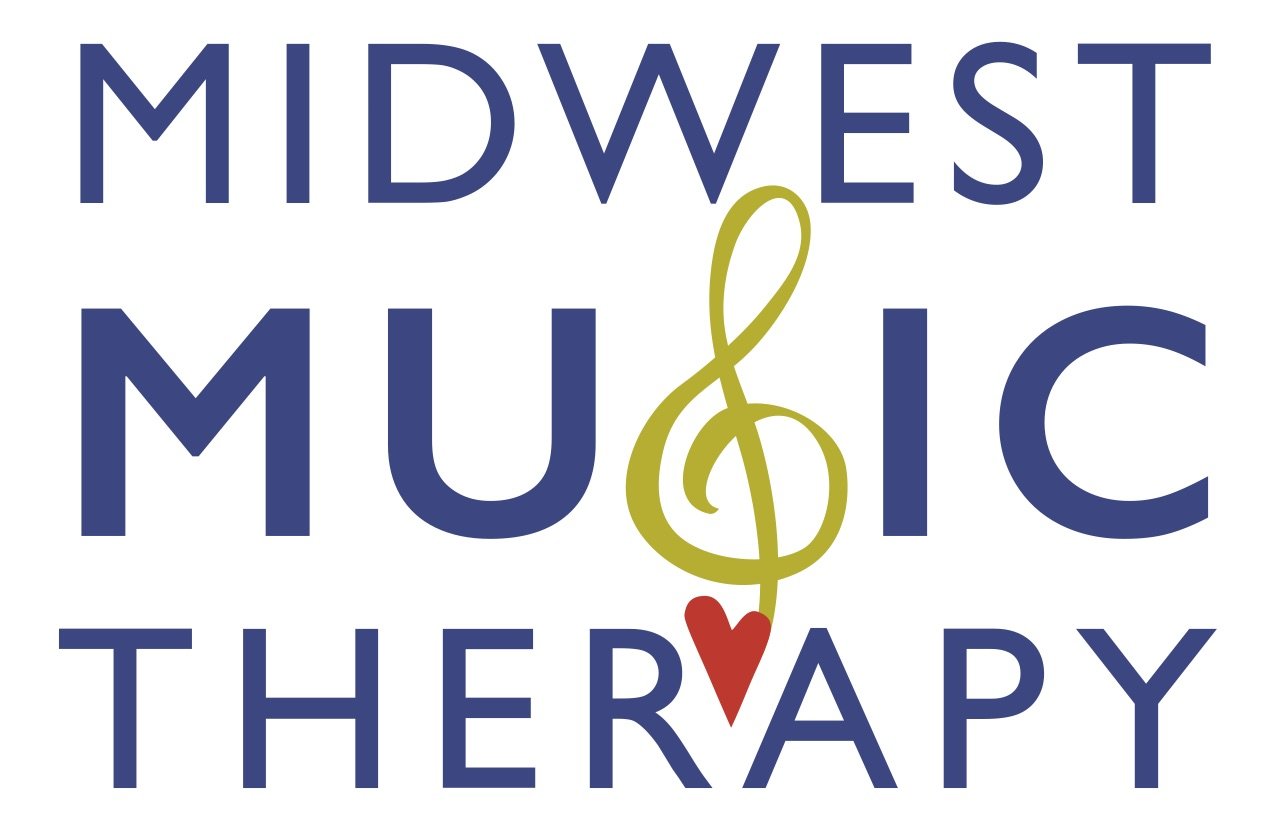Music Therapy in St. Louis
Here at Compassionate Counseling St. Louis we’re all about tailoring our approach to you! We love that all of our therapists use Cognitive Behavioral Therapy, and have additional tools in their toolboxes, whether that’s art therapy, TF-CBT, or relaxation and mindfulness skills.
We also love getting to know other helping professionals and passing on what we learn! So we’re excited to interview Maria Carron, Director of Services at Midwest Music Therapy Services, Inc., to learn more about music therapy and how it can help anxious kids, teens, and young adults!
Maria Carron, Director of Services at Midwest Music Therapy Services, Inc.
Why did you choose to become a music therapist in St. Louis?
Music has always been an important part of my life. I loved singing and started playing piano at an early age. In high school, when I started considering future career paths, I was drawn to health related professions. When I learned about music therapy, using music to help people, it seemed like the perfect fit. I grew up about an hour south of St. Louis, and received my degree in music therapy from Maryville University. After completing my internship in Birmingham, AL working with stroke and head injury patients, I returned to St. Louis to be close to family. I first working at a rehab hospital, and then for six years at a center for autism. In 2000, seeing the need for more access to music therapy in our community, I started Midwest Music Therapy Services. Our agency has grown to over 20 music therapists, working with a variety of populations in different settings. I am celebrating my 29th year as a music therapist!
What kind of treatment do you provide?
Our agency provides individual and groups services in homes, schools and agencies.
How is music therapy different from talk therapy?
Using music as our foundation for establishing rapport with clients, we can communicate verbally but also nonverbally, providing support, affirmation, and acceptance. Music based interventions can also be less threatening/anxiety provoking and allow people to let down their guard and just connect with the music. Somethings are difficult to put into words (at first), but can be shared musically, providing a starting point for further insight, work and learning. Music therapists often work as part of a larger treatment team with talk therapists, other creative arts therapists, doctors, play therapists, social workers, etc. We all bring our expertise and special insights together to best address a person’s needs.
What ages do you work with?
Our agency’s therapists work with all ages, birth through older adulthood, and a variety of populations. This includes individuals in foster care, individuals with a variety of intellectual and developmental needs, as well as, elder, palliative care and hospice clients.
What can parents expect to leave with after working with you?
New tools that individuals can use on a regular basis inside and outside of the therapy setting to help with identifying and handling difficult emotions, increased self-awareness and a positive self-image.
Who are your favorite types of clients to work with?
I enjoy working with all types of clients and age groups. I find it so rewarding to build connections, and facilitate growth, healing and learning through music therapy.
What happens during a first appointment with you?
Prior to the first appointment, initial intake information is obtained that includes musical interests and preferences, and client background information. During the first appointment, a music therapist engages a new client in a variety of music-based activities to help develop rapport and identify additional interests, strengths and areas of needed support. With clients that have experienced trauma, this might include live music making with simple instruments, client sharing/listening to music that is important to them, or singing familiar/preferred songs depending on the client’s initial comfort level. Sessions are structured to have an opening, middle and closing to help provide predictability and routine. Flexibility is key to our work as well, as we gauge a person’s responses and make changes to session plans as needed to meet a person where they are, connect and hopefully help them leave on a positive note.
How can music therapy help address anxiety in kids and teens?
Some music therapy interventions utilized to address anxiety in kids and teens, might include teaching the use of music for relaxation, mindfulness and for identifying positive coping skills. Other interventions include song writing to increase self expression, and song lyric analysis to facilitate discussion and self awareness, and drumming/instrument improvisation to help with emotional identification, release and regulation.
How can people learn more and contact you?
People can learn more through our website: midwestmusictherapy.com or by emailing support@midwestmusictherapy.com
Share one fun fact about you that most people don’t know.
I was the drum majorette of my high school marching band in Ste. Genevieve, MO!
Curious to hear more about our therapy approach here at Compassionate Counseling St. Louis? You can schedule a free phone consultation right on our website, or email us at hello@compassionatecounselingstl.com
Compassionate Counseling St. Louis is located in Clayton, MO. We specialize in anxiety and anger management therapy for kids, teens, and college students, from age 4 on up. We work with families throughout St. Louis City, St. Louis County, Ladue, Town and Country, Webster Groves, Creve Couer, Kirkwood, Richmond Heights, and Brentwood.


